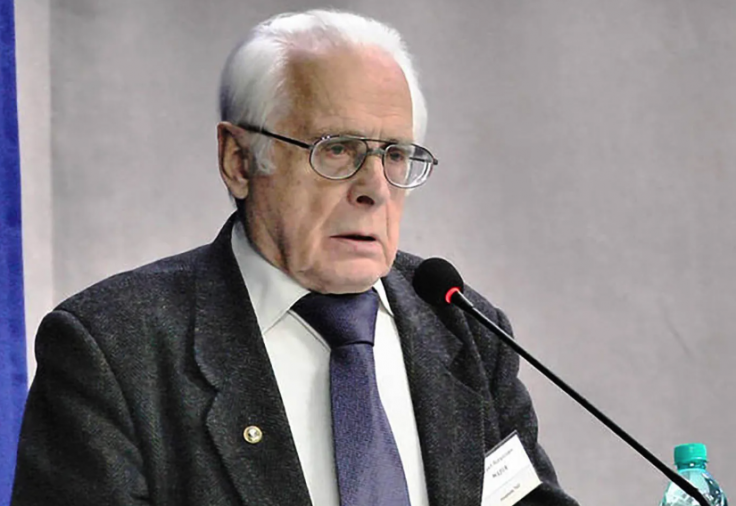
Mikhail Marov, a top Russian scientist and astronomer, has been hospitalized hours after Russia's first post-Soviet moon mission failed when the Luna-25 spacecraft crashed into the moon over the weekend.
Marov, 90, one of the leading figures in the Soviet space program, was hospitalized in the wake of the mission's failure, with reports claiming a a sharp deterioration in his health. He was rushed to a hospital in Moscow for treatment.
Marov Demanded No Cover-Up of Mission's Failure
The astronomer told news outlet RBC and the Moskovsky Komsomolets Daily that the setback was so heartbreaking that it had a negative impact on his health, according to the Independent. "It is sad that it was not possible to land the apparatus," Marov said. "For me, perhaps, it was the last hope to see the revival of our lunar program."
Marov revealed to RBC that he is being taken care of by medical professionals at the Central Clinical Hospital in Moscow, which is close to the Kremlin. Additionally, he urged officials to talk about the factors that contributed to the craft's collapse because they should not be kept silent. The physicist had previously provided support for Soviet space programmes.
The Luna-25 Probe Spun Out of Control and Crashed into the Moon's Surface
Luna-25 was launched on August 11 at at 2 a.m. Moscow time from the Vostochny Cosmodrome, a Russian spaceport in the Amur region, some 3,450 miles (5,550) kilometers east of Moscow. As the Luna-25 probe, Russia' s first Moon mission in nearly 50 years, crashed on the lunar surface during pre-landing maneuvers, Russia's ambitions for landing on the moon were dashed.
Moscow had anticipated that Luna-25 would be successful to carry on the legacy of the Luna program from the Soviet era and signify a return to independent lunar exploration in the face of increased isolation from the West. The mysterious abrupt loss of contact with Luna-25 was confirmed by the Russian space agency Roscosmos on Sunday.
According to a statement from Roscosmos, "the apparatus moved into an unpredictable orbit and ceased to exist as a result of a collision with the surface of the Moon."
Roscosmos has announced its intention to launch a governmental investigation into the accident's causes. It also avoided disclosing any specific technology issues that might have contributed to the disappointing outcome.









